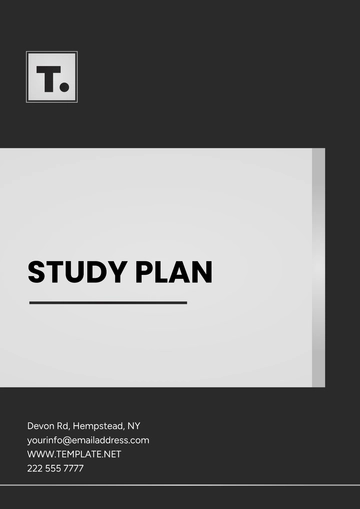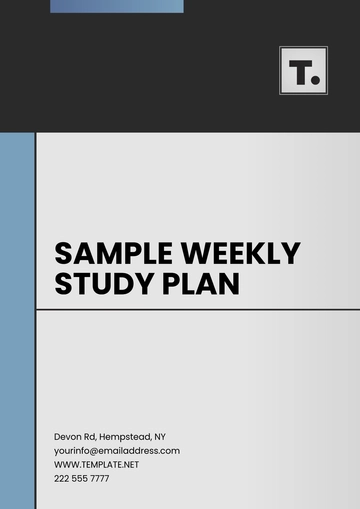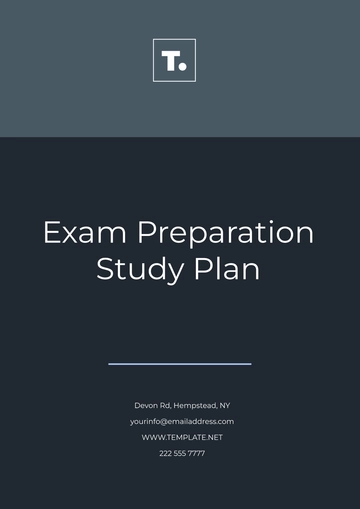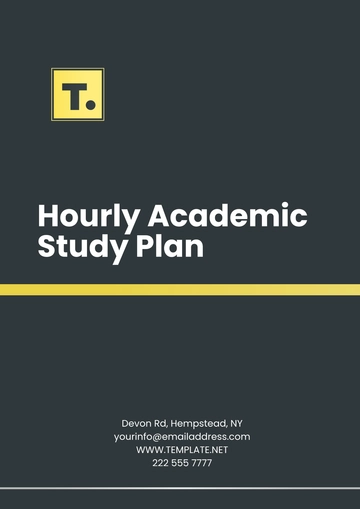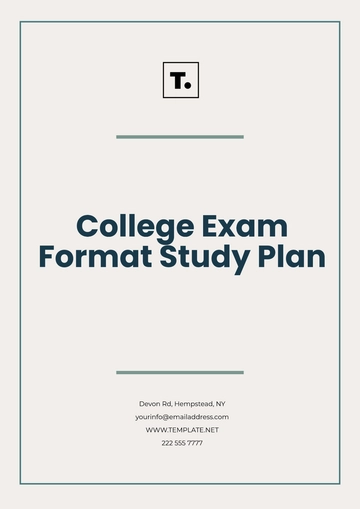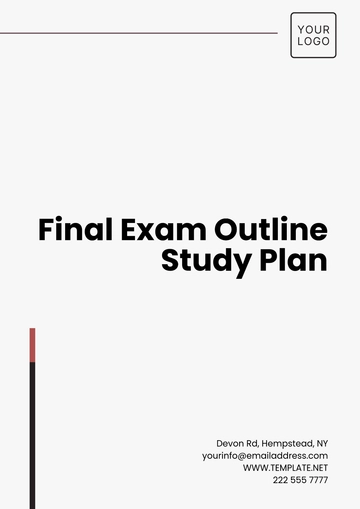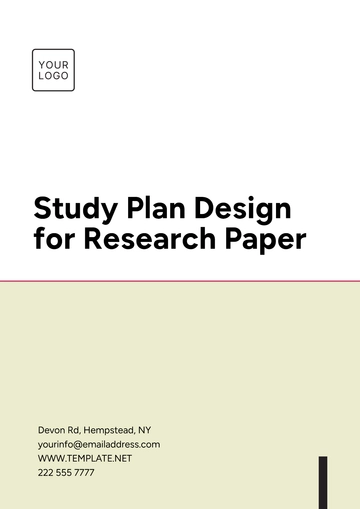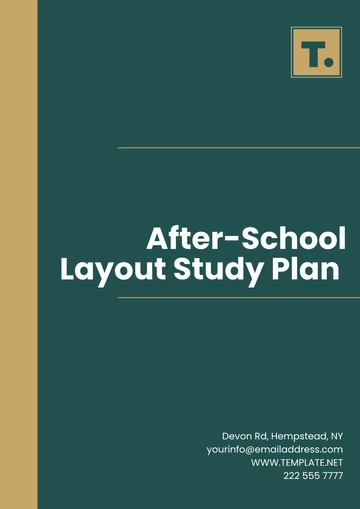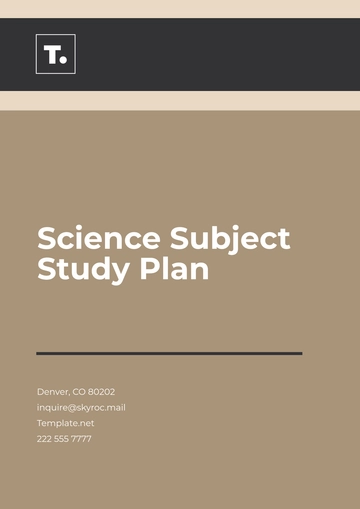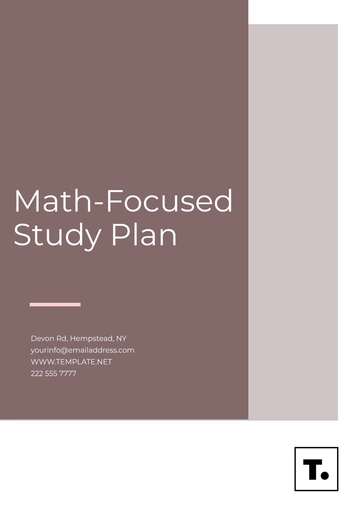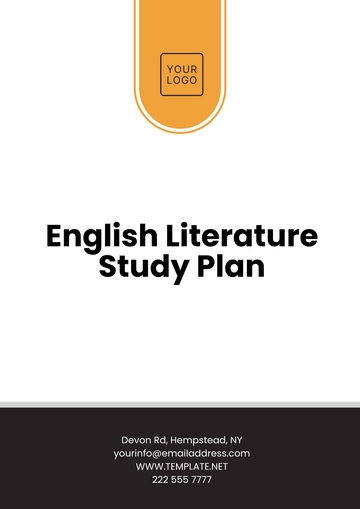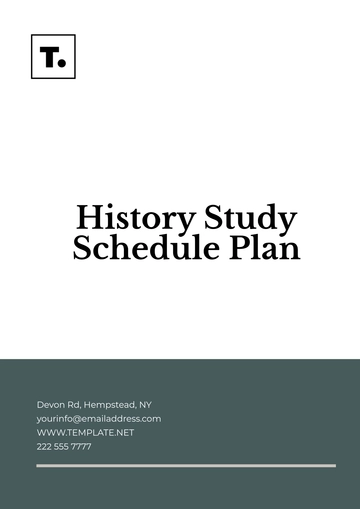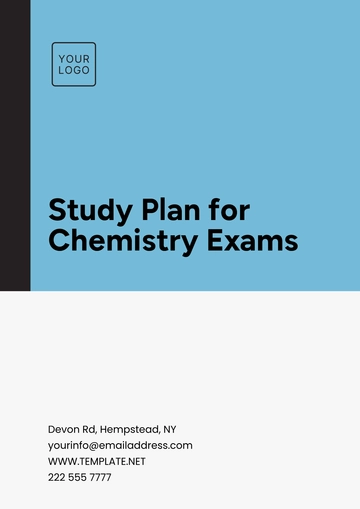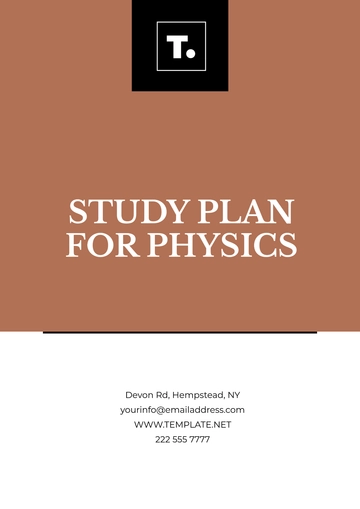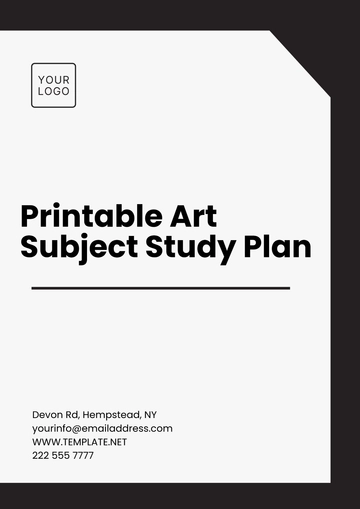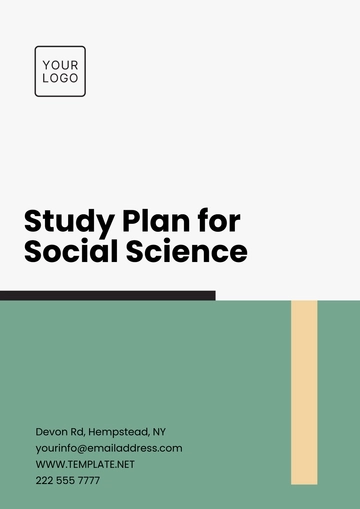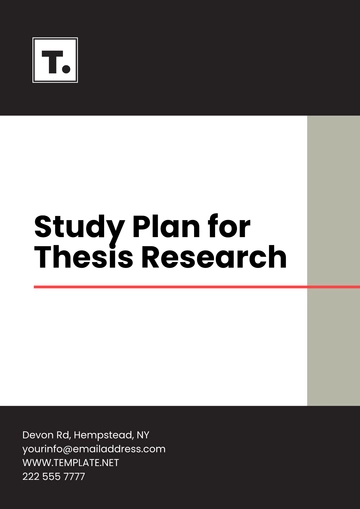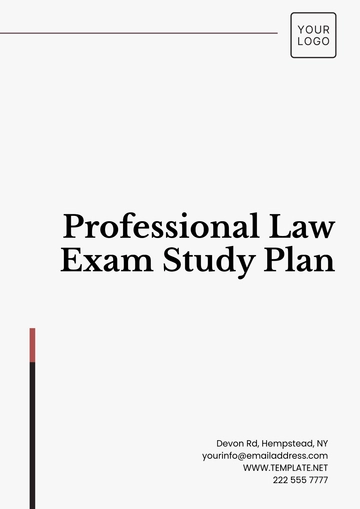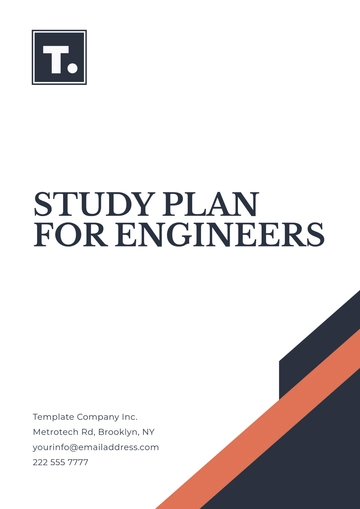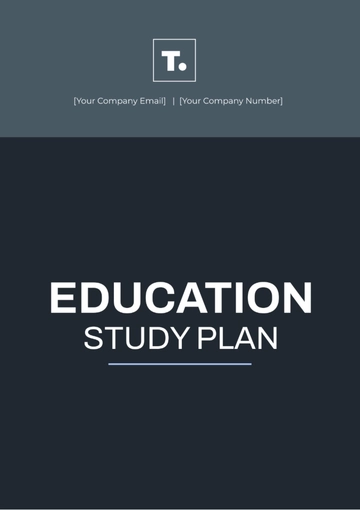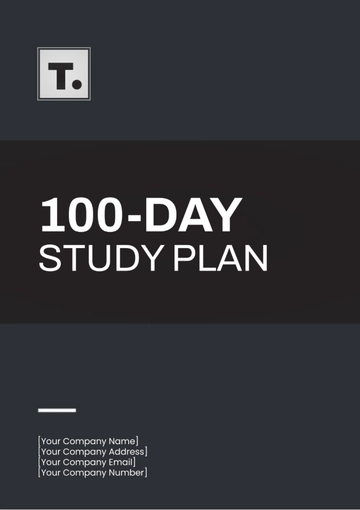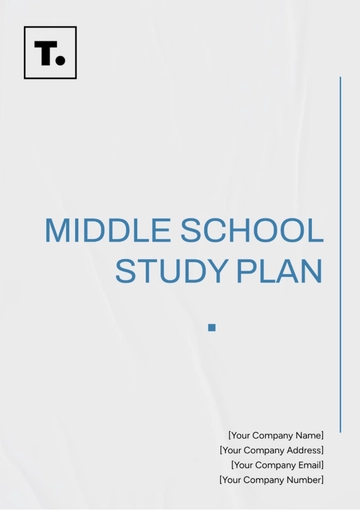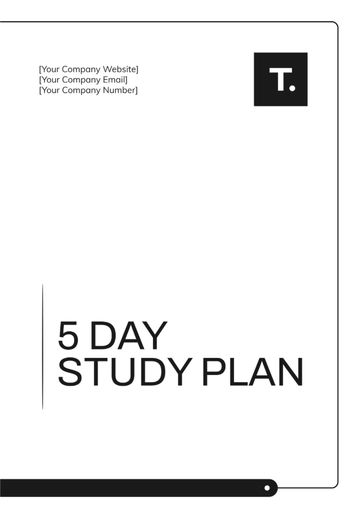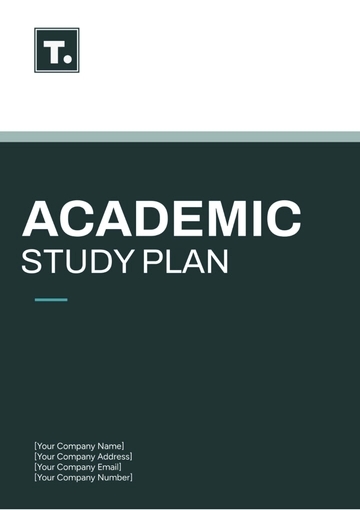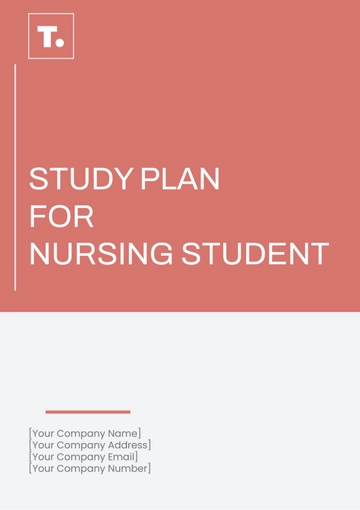Free Scholarship Study Plan
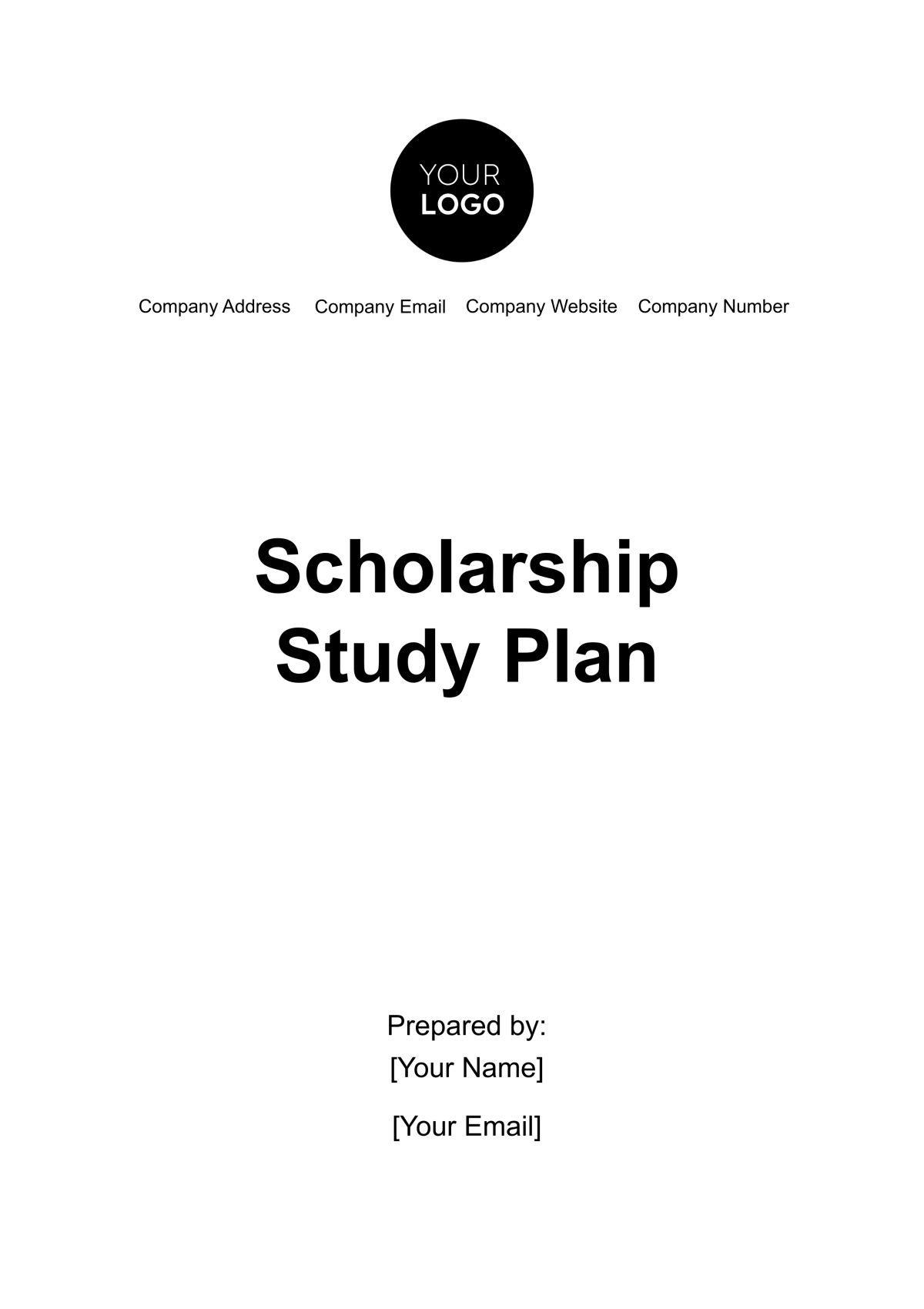
I. Introduction
The purpose of this Scholarship Study Plan is to provide a clear, structured outline of my academic aspirations, research intentions, and financial planning as I pursue the Master of Science in Environmental Science at Greenwood University in Environmental Policy and Management. This scholarship will not only support my educational journey but also enable me to contribute meaningfully to the field and society. My long-term vision is to advance knowledge in sustainable practices and climate resilience, and this scholarship will play a crucial role in making that vision a reality.
In recent years, the urgent need to address environmental challenges such as climate change, pollution, and resource depletion has become increasingly apparent. As a dedicated student with a passion for the environment, I have witnessed firsthand the impact of these issues on communities and ecosystems. This awareness has fueled my desire to pursue an advanced degree and become an effective advocate for sustainable solutions. Through my studies and research, I aspire to develop innovative strategies that will mitigate environmental degradation while promoting social equity and community resilience.
A. Purpose of the Scholarship Study Plan
Clarify Goals: This plan aims to articulate my short-term and long-term academic and career objectives. By defining these goals, I can create a roadmap for my educational journey, ensuring that my efforts are aligned with my aspirations. For instance, I aim to maintain a GPA of at least [3.7] during my studies to position myself favorably for future opportunities. Setting this academic benchmark will motivate me to remain focused and disciplined throughout my coursework.
Detail Academic Interests: I am deeply passionate about sustainable development, particularly in renewable energy systems. My interest in this field has been shaped by my undergraduate studies and internships, which have instilled in me a desire to contribute to research and practice. For example, I participated in a project focused on the implementation of solar energy solutions in underprivileged communities, which sparked my interest in pursuing advanced studies. Additionally, my academic background in Environmental Science has provided me with a solid foundation in ecological principles, allowing me to understand the complexities of human-environment interactions.
Outline Research Intentions: I intend to conduct research that addresses the impact of renewable energy policies on community resilience and environmental justice. My goal is to develop innovative solutions that can positively affect low-income communities disproportionately affected by environmental changes. For example, I plan to investigate how policy frameworks can be designed to support equitable access to renewable energy resources during my time in the program. Through this research, I hope to identify effective strategies that can be implemented at both local and national levels to foster sustainable energy practices.
Demonstrate Commitment: This plan demonstrates my commitment to my academic journey and the contributions I hope to make. By outlining my objectives and strategies, I want to convey my readiness to embrace the challenges and opportunities that lie ahead. I recognize that graduate studies will require dedication, resilience, and a proactive approach to learning. I am prepared to face these challenges head-on and leverage the resources available to me at Greenwood University.
B. Importance of a Comprehensive Plan
A comprehensive Scholarship Study Plan is vital for several reasons:
Assessment by Scholarship Committees: Scholarship committees carefully evaluate applicants’ plans to gauge their preparedness and commitment. A well-structured plan can significantly enhance my chances of securing funding by showcasing my initiative and foresight. For instance, I intend to actively participate in departmental events and networking opportunities to build relationships with faculty and peers. Engaging with other students and faculty members will enrich my educational experience and provide valuable insights into the field.
Personal Reflection: The process of crafting this plan has prompted me to reflect on my motivations and aspirations. It has reinforced my understanding of my goals and the steps required to achieve them. I am now more focused and excited about the opportunities ahead. This reflection has also helped me identify potential challenges I may face during my studies and develop strategies to overcome them.
Foundation for Future Plans: This document will serve as a basis for my future academic and professional endeavors. By defining my goals and strategies now, I will be better equipped to navigate my career path post-graduation. I envision this plan guiding my decisions regarding internships, further education, and research collaborations. Establishing clear milestones will help me stay on track and measure my progress throughout my academic journey.
II. Applicant Information
A. Personal Details
Detail | Information |
|---|---|
Name: | [Your Name] |
Email: | [Your Email] |
Contact Number: | [Your Number] |
Address: | [Your Address] |
B. Academic Background
Degree | Institution | Year Completed |
|---|---|---|
Bachelor of Science | Springfield University | 2050 |
Master of Arts | Greenwood University | 2055 (expected) |
I completed my Bachelor of Science in Environmental Science at Springfield University in 2050. During my undergraduate studies, I excelled in courses such as Environmental Policy and Ecological Economics, maintaining a GPA of [3.8]. My coursework included extensive research projects that not only deepened my understanding of environmental issues but also sharpened my analytical skills. My Master of Arts in Sustainable Development from Greenwood University is expected to deepen my understanding of policy frameworks and social impacts within the environmental sector.
C. Work Experience
Position | Company Name | Duration |
|---|---|---|
Research Assistant | Springfield Environmental Research Institute | 2057 - 2059 |
Intern | Solar Power Initiative | Summer 2059 |
As a Research Assistant at the Springfield Environmental Research Institute from 2057 to 2059, I worked on a project assessing the impact of climate change on local biodiversity. My responsibilities included data collection, statistical analysis, and co-authoring a paper presented at the National Conference on Climate Change. This experience honed my research skills and reinforced my passion for applying scientific methods to real-world challenges. Through collaborating with seasoned researchers, I gained insights into effective research methodologies and the importance of data-driven decision-making in environmental policy.
During my internship at the Solar Power Initiative in the summer of 2059, I assisted in implementing solar energy systems in low-income neighborhoods. This hands-on experience further solidified my desire to explore sustainable energy solutions in my academic career. Working directly with community members provided me with a nuanced understanding of the social dynamics surrounding energy access and the critical role that education plays in fostering acceptance and adoption of renewable technologies.
III. Academic Goals
A. Short-term Goals
My short-term goals during the scholarship period (from 2050 to 2052) include:
Achieving Academic Excellence: I aim to maintain a GPA of at least [3.7], which will ensure my eligibility for continued funding and position me as a strong candidate for future opportunities. To achieve this, I plan to establish a rigorous study schedule, utilize tutoring resources, and engage actively in class discussions. I will also seek feedback from professors on my coursework to continuously improve my understanding and performance.
Expanding Knowledge: I intend to complete coursework focused on Environmental Policy Analysis and Renewable Energy Technologies. These courses will enhance my understanding of complex environmental issues and equip me with the necessary analytical tools for my research. I anticipate dedicating at least [20] hours a week to studying and participating in group projects. This commitment will not only strengthen my academic performance but also help me build valuable connections with my peers.
Participating in Extracurricular Activities: I plan to join the Environmental Policy Club and the Green Innovation Society related to environmental advocacy and research. These organizations will provide networking opportunities and help me develop practical skills through workshops and community engagement. For example, participating in the Environmental Policy Club will allow me to collaborate with peers on sustainability projects and community outreach programs. Engaging in these activities will further enhance my understanding of the practical applications of my studies and enable me to contribute to impactful initiatives.
B. Long-term Goals
My long-term goals extend beyond the scholarship period and include:
Pursuing Advanced Degrees: After completing my current program, I plan to pursue a Ph.D. in Environmental Science with a focus on Sustainable Energy Policy. This commitment to advanced education will deepen my expertise and allow me to contribute original research to the field. I envision my doctoral research exploring the integration of renewable energy into urban planning, addressing both environmental sustainability and social equity.
Entering the Workforce: I aspire to secure a position as a Policy Analyst in a leading environmental organization or governmental agency. This role will enable me to apply my knowledge in practical settings, influence policy, and drive meaningful change in environmental practices. I hope to achieve this within [2] years of completing my Master's program. In this capacity, I aim to collaborate with stakeholders to develop evidence-based policies that promote sustainable energy initiatives.
Contributing to Research: I aim to publish at least [3] research papers in reputable journals over the next [5] years. Sharing my findings will foster dialogue in the academic community and contribute to ongoing efforts to address environmental challenges. I will actively seek opportunities to collaborate with other researchers and participate in relevant conferences to disseminate my work. By publishing my research, I hope to inspire others in the field and contribute to the body of knowledge surrounding sustainable development.
IV. Research Plan
A. Research Interests
My primary research interests lie within the realm of sustainable development, particularly in:
Field of Study: I am focused on renewable energy systems and their socio-economic impacts. This interest stems from my belief that transitioning to sustainable energy sources is critical for addressing climate change and promoting social equity. I am particularly interested in examining the effectiveness of various policy frameworks in facilitating this transition.
Research Questions: My research will address the following questions:
How do renewable energy policies influence community resilience in low-income neighborhoods?
What barriers do marginalized communities face in accessing renewable energy resources?
How can policy frameworks be designed to ensure equitable distribution of renewable energy technologies?
B. Methodology
To answer these questions, I will employ a mixed-methods approach that combines qualitative and quantitative research techniques:
Literature Review: I will conduct a comprehensive review of existing literature on renewable energy policies and their impacts on communities. This review will inform my understanding of the current state of research in this area and help identify gaps that my study can address. I aim to synthesize findings from various studies to establish a theoretical framework that will guide my research.
Surveys and Interviews: I plan to develop surveys for community members and conduct interviews with policymakers and stakeholders involved in renewable energy initiatives. This qualitative data will provide valuable insights into the experiences and challenges faced by communities. By engaging with diverse perspectives, I aim to gather a holistic understanding of the socio-economic dynamics at play.
Case Studies: I will select case studies of successful renewable energy projects in marginalized communities. Analyzing these cases will allow me to identify best practices and lessons learned that can inform future initiatives. I anticipate that these case studies will highlight the importance of community engagement and participatory approaches in renewable energy implementation.
C. Anticipated Outcomes
Policy Recommendations: My research aims to produce actionable policy recommendations that can guide policymakers in developing equitable renewable energy initiatives. By identifying effective strategies, I hope to contribute to the advancement of sustainable energy practices that benefit all communities.
Community Engagement: I intend to work closely with community organizations to share research findings and promote awareness of renewable energy resources. Engaging with community members will ensure that my research is grounded in their experiences and needs. I plan to organize workshops and seminars to disseminate information and facilitate discussions on sustainable energy solutions.
Publications and Presentations: I aim to publish my findings in peer-reviewed journals and present my research at national and international conferences. Sharing my work with the academic community will foster collaboration and inspire further research in the field. I look forward to contributing to scholarly discourse and raising awareness about the importance of equitable energy access.
D. Networking and Professional Development
Conferences and Workshops: I will participate in national and international conferences such as the International Conference on Renewable Energy and local workshops to stay informed about current trends and research in my field. Networking at these events will provide valuable insights and potential collaboration opportunities. I believe that actively engaging with experts and practitioners will enhance my knowledge and broaden my professional network.
Join Professional Organizations: I will become a member of organizations such as the American Society for Renewable Energy and the Environmental Policy Association. These memberships will offer access to resources, training, and networking events that can enhance my professional development. By connecting with professionals in my field, I hope to gain insights into emerging issues and best practices that can inform my research and career trajectory.
Skill Development: I plan to take advantage of workshops and training programs offered by the university to enhance my research and communication skills. Developing proficiency in data analysis software and research methodologies will be essential for my success as a graduate student. I also aim to improve my public speaking skills to effectively communicate my research findings to diverse audiences.
V. Financial Planning
A. Estimated Budget
To effectively manage my financial resources during my studies, I have created a detailed budget that outlines my anticipated expenses and income sources. The following table presents an overview of my estimated budget for the scholarship period from 2050 to 2052.
Expense Category | Estimated Cost ($) |
|---|---|
Tuition Fees | [30,000] |
Books and Supplies | [2,000] |
Housing | [12,000] |
Food | [4,000] |
Transportation | [1,500] |
Health Insurance | [2,000] |
Miscellaneous Expenses | [1,500] |
Total Estimated Costs | [53,500] |
Tuition Fees: The tuition fees at Greenwood University for the Master's program in Environmental Science are approximately [30,000] for the two-year program. This cost covers various aspects of my education, including course materials, laboratory access, and administrative fees.
Books and Supplies: I estimate spending around [2,000] on books and necessary supplies, including specialized texts, laboratory equipment, and software needed for research projects.
Housing: I anticipate my housing expenses to be about [12,000] over the two-year period, which includes rent and utilities. This estimate is based on average rental costs in Springfield.
Food: I expect to spend approximately [4,000] on food, which will cover groceries and occasional dining out. This amount reflects a modest budget that allows for nutritious meals while remaining cost-effective.
Transportation: Transportation costs are estimated at [1,500], accounting for public transport and occasional travel expenses for research-related activities or conferences.
Health Insurance: I plan to allocate around [2,000] for health insurance, ensuring that I have access to necessary medical services during my studies. Maintaining good health is crucial for my academic performance.
Miscellaneous Expenses: I have set aside [1,500] for miscellaneous expenses, which may include personal care items, school supplies, and other unexpected costs that may arise.
B. Funding Sources
To cover these expenses, I plan to utilize a combination of funding sources:
Scholarships: I am applying for the [Your Company Name] Scholarship, which offers [10,000] per year for eligible candidates. This scholarship will significantly alleviate my financial burden and allow me to focus on my studies without worrying about excessive debt. Receiving this scholarship would not only provide financial assistance but also validate my hard work and commitment to my academic goals.
Grants: I will seek research grants available for graduate students, such as the National Science Foundation Grants, which can provide additional financial support for my research projects. I will actively monitor grant opportunities and submit proposals that align with my research interests, demonstrating the potential impact of my work on the field. These grants can vary widely in amounts, typically ranging from [5,000] to [25,000], depending on the scope of the project and the funding organization.
Part-time Employment: I plan to work part-time (approximately [10-15] hours per week) in a research assistantship or tutoring position within the university, which could provide an estimated income of [8,000] per year. This work experience will not only help me financially but also enrich my academic journey by allowing me to apply theoretical knowledge in practical settings. I aim to secure a position that complements my studies and contributes to my professional development.
Family Support: My family has pledged to contribute [5,000] towards my education costs, demonstrating their commitment to my academic success. This support will provide additional peace of mind and allow me to focus on my studies without financial stress. I deeply appreciate their belief in my potential and the sacrifices they are willing to make for my education.
C. Financial Goals
Minimize Debt: I aim to minimize student loan debt by maximizing scholarship and grant funding. My goal is to graduate with no more than [10,000] in student loans. I believe that by being proactive in securing funding and managing my finances effectively, I can achieve this goal and start my career with a solid financial foundation.
Create a Financial Safety Net: I plan to save a portion of my part-time income to create a financial buffer for unexpected expenses. My goal is to save at least [2,000] during my studies. Having a safety net will provide me with greater peace of mind and allow me to navigate any unforeseen circumstances that may arise during my academic journey.
Budgeting and Monitoring: I will implement a strict budgeting system to track my expenses and income, ensuring that I remain within my financial limits. I will review my budget quarterly to make adjustments as necessary. By maintaining financial discipline, I aim to make informed decisions that align with my educational goals and ensure that I can sustain my studies over the long term.
VI. Conclusion
This Scholarship Study Plan outlines my academic goals, research intentions, and financial planning as I pursue my Master's degree in Environmental Science at Greenwood University. The support from [Your Company Name] through this scholarship is critical to my success, allowing me to focus on my studies and research without the burden of financial stress.
By achieving my academic and research goals, I am committed to making meaningful contributions to the field of environmental science, specifically in sustainable energy policy and community resilience. I look forward to leveraging this opportunity to enhance my own knowledge and skills while benefiting the broader community through my research and advocacy.
I believe that through rigorous academic training and community engagement, I can influence positive change in environmental policy and practice. My goal is to bridge the gap between scientific research and practical implementation, ensuring that sustainable solutions are accessible and beneficial to all.
- 100% Customizable, free editor
- Access 1 Million+ Templates, photo’s & graphics
- Download or share as a template
- Click and replace photos, graphics, text, backgrounds
- Resize, crop, AI write & more
- Access advanced editor
Plan academic goals with the Scholarship Study Plan Template from Template.net. Fully editable and customizable, this template allows students to outline their study plans. Use our Ai Editor Tool to personalize it according to your scholarship’s requirements.
